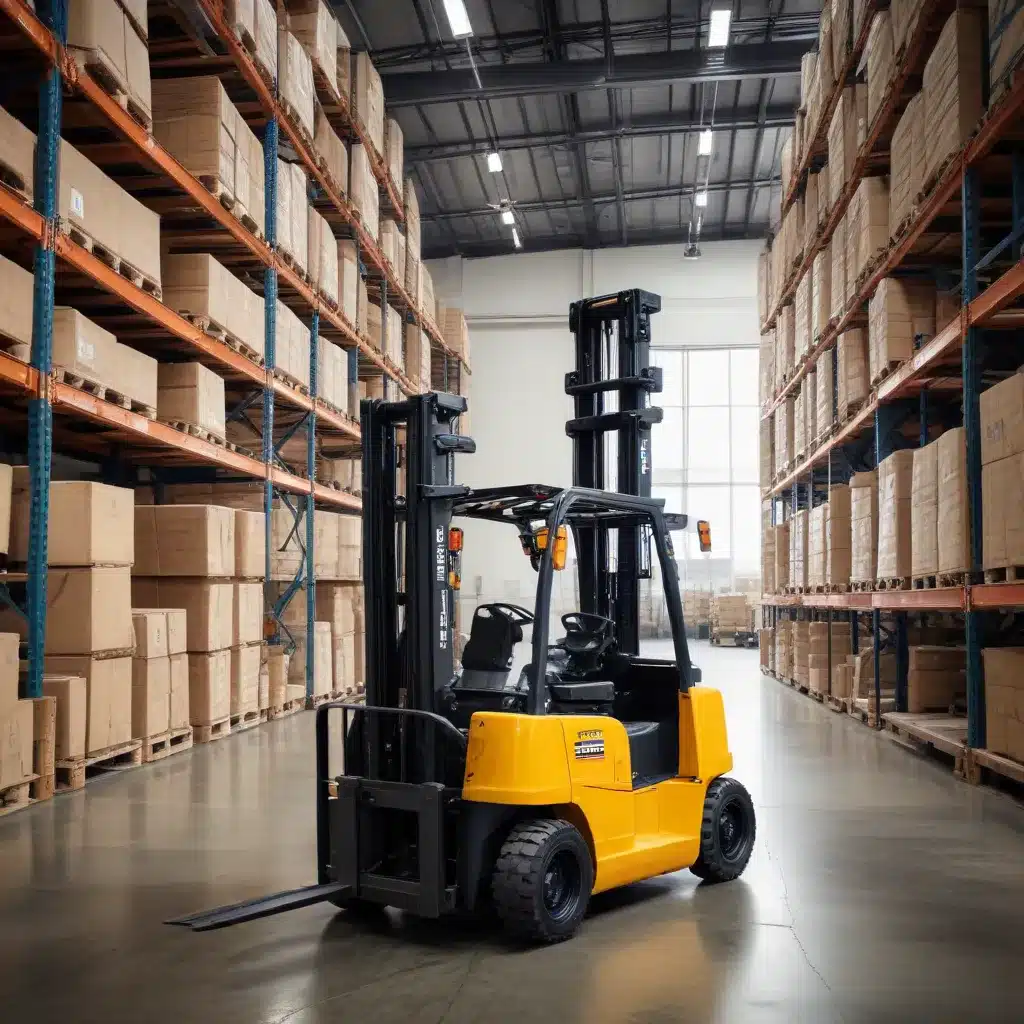
The Evolving Landscape of Forklift Operations
In an era where sustainability has become a driving force in business practices, the material handling industry is undergoing a transformative shift. Forklifts, the backbone of warehouse and logistics operations, are at the forefront of this environmental revolution. As companies strive to minimize their carbon footprint and embrace eco-friendly solutions, the adoption of electric forklifts has emerged as a game-changer, paving the way for a greener future in material handling.
The Rise of Electric Forklifts
Traditionally, forklifts have been powered by internal combustion engines, running on gasoline, diesel, or propane. These conventional models, while reliable and powerful, have contributed significantly to air pollution and greenhouse gas emissions. However, the tide is turning as electric forklifts gain traction, offering a clean and efficient alternative.
Electric forklifts, powered by advanced battery technology, produce zero emissions at the point of use, making them a sustainable choice for indoor and outdoor operations. By eliminating the direct release of harmful pollutants, these electric workhorses create a healthier work environment for operators and surrounding communities. Furthermore, their quiet operation contributes to a more peaceful and ergonomic workplace, enhancing the overall well-being of the workforce.
Advancements in Battery Technology
The success of electric forklifts hinges on the advancements in battery technology. Lithium-ion batteries have emerged as the frontrunner, offering several advantages over their lead-acid counterparts. With higher energy density, longer operational hours, and faster charging capabilities, lithium-ion batteries have become the preferred power source for modern electric forklifts.
Moreover, the development of sophisticated battery management systems has further enhanced the efficiency and lifespan of these batteries. Intelligent monitoring and optimization algorithms ensure optimal performance, extended runtime, and reduced maintenance requirements, making electric forklifts a more viable and sustainable option for intensive material handling operations.
Embracing Sustainability: Jungheinrich’s Commitment
As a globally leading provider of intralogistics solutions, Jungheinrich has been at the forefront of developing innovative and sustainable products for material handling. With a diverse portfolio of electric forklifts, automated systems, and digital solutions, Jungheinrich offers tailored solutions to support businesses in meeting the challenges of intralogistics sustainably.
Lithium-ion Technology: A Greener Approach
Jungheinrich has been producing electric forklifts powered by lithium-ion batteries for over a decade, leading the industry’s transition towards more environmentally friendly material handling equipment. The company’s commitment to sustainability is evident in its comprehensive adoption of lithium-ion technology across its entire product range.
The innovative design concept of Jungheinrich’s integrated lithium-ion battery empowers users to achieve greater performance with reduced energy consumption. This technology not only enhances the operational efficiency of the forklifts but also contributes to a significantly lower carbon footprint.
In line with its commitment to sustainability, Jungheinrich has embraced a 100% electric approach in India, transitioning from traditional lead-acid batteries to lithium-ion technology. This strategic shift aligns with the company’s goal of addressing global environmental concerns and promoting a greener future in the material handling industry.
Refurbishment: Extending the Lifecycle of Equipment
Jungheinrich’s dedication to sustainability extends beyond the choice of power source. The company has also embraced the concept of refurbishing used material handling equipment, a practice known as “JUNGSTARS.” These refurbished forklifts undergo a meticulous process to restore them to top condition, both technically and aesthetically, ensuring they meet the highest safety and sustainability standards.
By refurbishing used equipment instead of manufacturing new units, Jungheinrich’s JUNGSTARS initiative saves approximately 80% of the CO2 emissions compared to producing new forklifts. The refurbishment process involves reprocessing components in a way that conserves resources, reducing waste and minimizing the environmental impact. Additionally, Jungheinrich guarantees the professional and environmentally friendly disposal of materials and vehicles at the end of their lifecycle.
Holistic Approach to Sustainability
Jungheinrich’s commitment to sustainability in material handling goes beyond the adoption of electric forklifts and refurbishment practices. The company has a holistic approach that encompasses various aspects of its operations, demonstrating its dedication to creating a greener future.
Eco-Friendly Design and Manufacturing
Jungheinrich’s focus on sustainability extends to the design and manufacturing processes of its material handling equipment. The company prioritizes the use of eco-friendly materials and implements design strategies that enhance the lifespan of its forklifts, reducing the need for premature replacements. By incorporating these sustainable practices, Jungheinrich ensures that its products not only contribute to a cleaner environment but also align with the long-term goals of its customers.
Sustainable Partnerships and Initiatives
Recognizing the importance of collaborative efforts, Jungheinrich has forged partnerships and initiatives that further its sustainability agenda. The company’s “Sell More Truck, Grow More Trees” program embodies its commitment to the environment, where a tree is planted for every piece of equipment sold. This holistic approach aligns with Jungheinrich’s understanding of its role in addressing global environmental concerns and fostering a more sustainable future.
Empowering Operators for Eco-Friendly Practices
Sustainability is not just about the equipment; it also involves the people who operate it. Jungheinrich’s comprehensive training programs not only focus on safe forklift operation but also emphasize eco-friendly practices. By educating operators on energy-efficient driving techniques and proper maintenance procedures, the company empowers its workforce to contribute to a greener material handling ecosystem.
The Future of Sustainable Material Handling
The shift towards sustainable material handling practices, spearheaded by the adoption of electric forklifts, is a testament to the industry’s commitment to environmental responsibility. As businesses navigate the path towards a greener future, the partnership between Jungheinrich and its customers plays a crucial role in shaping the landscape of material handling.
By embracing innovative technologies, refurbishing equipment, and implementing holistic sustainability initiatives, Jungheinrich is leading the charge in creating a more eco-conscious material handling industry. This comprehensive approach not only reduces environmental impact but also enhances operational efficiency, productivity, and cost-effectiveness for businesses.
As the world continues to prioritize sustainability, the material handling industry stands at the forefront of this transformation. Forklift Reviews is committed to providing valuable insights and practical advice to help businesses navigate this evolving landscape, empowering them to make informed decisions and contribute to a greener, more sustainable future.

